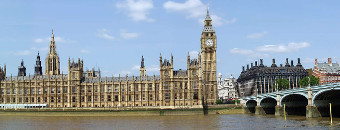As Brexit is getting closer, UK universities are worried that the country is not attractive enough for overseas graduate under UK tier4 general student visa anymore. They ask for reintroduction of the post-study work, abandoned in 2012, saying it would give the UK a competitive edge over rival countries and help it maintain the 450,000 international students who come to study in Britain every year.
Universities UK, the sector’s umbrella body, said in a briefing to parliament on the 4th of september: “The UK remains an extremely popular destination for international students, attracting more students from abroad except the much larger US.
“However, the UK’s closest competitors, such as the USA, Australia, France and Germany, all continue to grow at a faster rate than the UK.”
While student numbers in 2014-15 rose by 9.4% in the US, 10.7% in Australia and 8.7% in Germany, the UK rate was 0.5%.
A reintroduction of this visa would be an important source of soft power in the post-Brexit era. Most ironic is that it was Boris Johnson during a trip to India, then London mayor in 2012, who challenged Theresa May, then Home Secretary, that government restrictions on overseas students are putting off the brightest from coming to study in Britain.
Sir Steve Smith, the vice-chancellor of Exeter University and chairman of Universities UK’s international policy network, said : “The UK as a country needs to make it clear that international students are absolutely welcome. I think now is the time, when we are 29 weeks from Brexit allegedly, to make a grand statement about welcoming in a new era where global talent can come to this country, study, work afterwards and thereby deal with the number-one issue with the economy, which is productivity, allowing those skilled workers enter the workforce.”
In 2012, the UK abandoned the post-study visa that had allowed graduates to stay and work in the country for two years, as the then home secretary, Theresa May, led a crackdown on student overstayers.
But Theresa May claim that up to 100,000 foreign students were failing to return home, fuelling concerns that post-study work visas were a back door to immigration, have been discredited, said Sir Steve Smith, with recent exit information showing 97% of students whose visas expired in 2018 “left on time”.
He pointed out that the US and Canada allow students to stay for three years after graduating, while Australia, often cited as a role model for immigration by Brexiters, allows them to stay for four.
A government-commissioned report on the impact of Brexit on the labour market has been published on the 11th of september by the independent migration advisory committee (MAC). MAC recommended keeping foreign students in the net migration statistics and, while it calls for the government to make it easier for some foreign students to access work after study, it stopped short of recommending a post-study work visa.
Theresa May has long rejected demands to remove students from the Tories’ net migration target of 100,000 and the report’s conclusions will be seen by some as a vindication of her stance.
The report later adds: “We do think it would be helpful if the government avoided sending mixed messages about its plans regarding international students.
“Based on the evidence gathered for this report, we do not recommend any toughening of visa requirements, so a clear statement on this would also reassure. It would be better to loosen visa requirements as much as possible.”
The committee did not recommend removing students from the net migration target of tens of thousands, saying it would be “difficult technically, and if done correctly would make almost no difference to the net migration figures”.
Theresa May has repeatedly rejected suggestions that the UK should exclude international students from official migration figures.
The committee recommended that the post-study leave-to-remain period for master’s students be extended from four to six months.
In addition, the committee said the 12 months leave to remain after completion of a PhD should be automatically built in to the original visa duration – it currently has to be applied for, with associated costs.
The advisers stopped short of introducing a separate post-study work visa, which they acknowledged would disappoint some in the education sector.
On the contrary, universities want the post-study visa to be unrestricted allowing graduates to seek jobs without a sponsor with colleges monitoring graduates for compliance.
A spokesman for the Home Office said it recognised the “the cultural and financial contribution which international students make to the UK “ which was why they allowed students to stay if they got a “graduate level job get an internship or apply to set up a business in the UK.”
Universities UK pointed out that this is restricted as students under Tier 4 visa must find a job with a salary of at least £20,800 at an employer with a Tier2 sponsor licence for a british work visa within four months of completing their course, or find sponsorship as an entrepreneur for a Tier1 UK work visa as a graduate entrepreneur. PhD students are separately able to stay for up to 12 months following completion of their degree.
